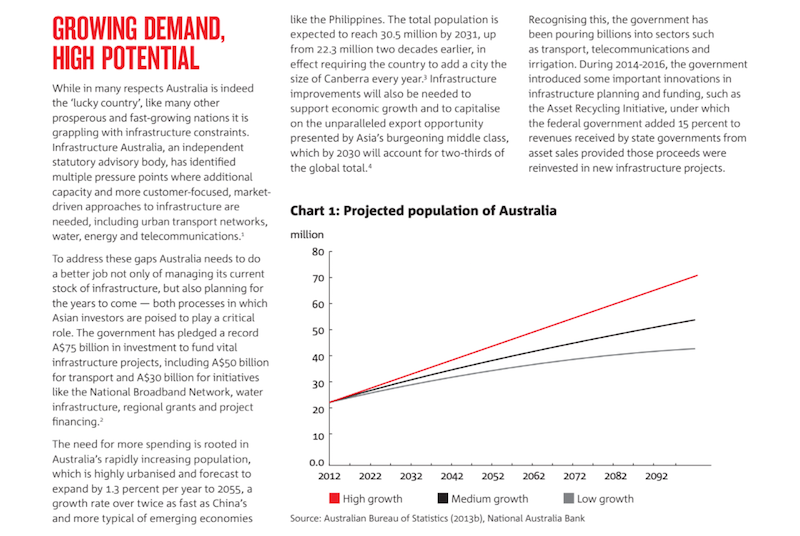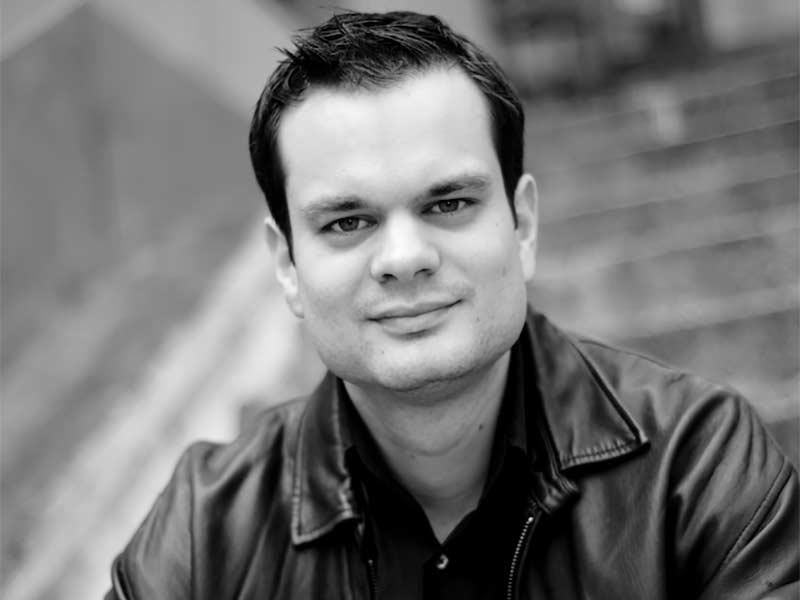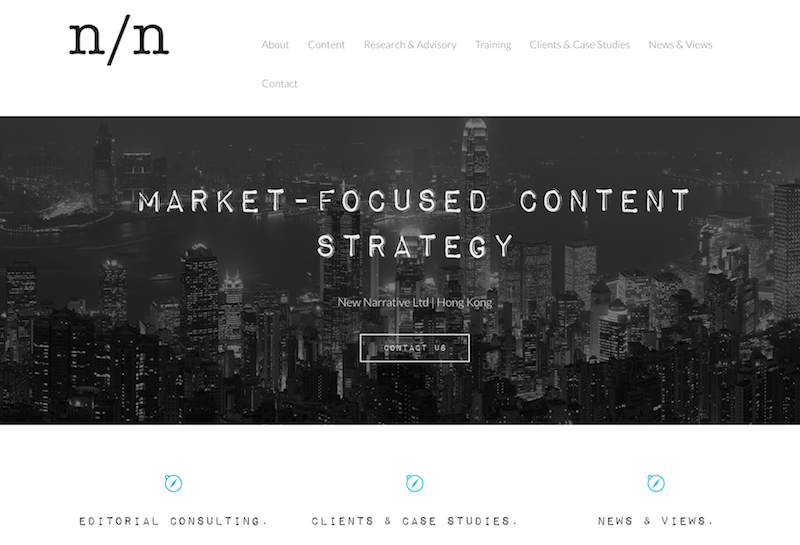From stylishly written advertorials to drawing up a content plan for a new company website, Joseph Chaney of New Narrative talks about mastering the use of words in order to deliver strategic and custom media campaigns.
Joseph Chaney is the co-founder of Hong Kong-based custom media firm New Narrative Ltd. New Narrative conceives strategic media campaigns for a range of global corporations across Asia and the Middle East, predominately financial and professional services firms.

Share a bit about yourself and what you were doing before you started New Narrative?
I grew up in New Jersey and studied political science, as well as Mandarin, in college. After graduation I flirted with the idea of becoming a professor, but ended up with two master’s degrees (instead of a PhD), and eventually went into journalism. I figured working within the international media was a great way to investigate the world, while also getting paid to travel and have interesting conversations with a wide range of people.
Reuters hired me as a foreign correspondent in Hong Kong in 2006. By 2011, most of the wanderlust was out of my system. I decided to take a job on the corporate side of Thomson Reuters as the business development manager for a multimedia service called Trading China, which covered China’s equity markets for the region’s portfolio managers. In other words, I switched from covering the news to trying to sell it. And then, in January 2013, that position was liquidated along with thousands of others in a global cost cutting exercise. Instead of looking for another role at Thomson Reuters, or for a job at one of its competitors, I took the payout and never looked back. That’s when I started New Narrative (in February 2013).
I was incredibly lucky to have two supportive co-founders who shared the dream with me, and who helped me through that first year and a half when I worked on New Narrative alone. They not only provided business contacts, but also sympathetic ears and genuine friendship when the going got tough in those early days.

When you work in the media you meet a wide range of people across multiple industries. In those first few weeks, I built a database of all of our existing contacts and emailed them, notifying everyone I knew about our tiny company. I’d guess that from the first 30 emails I sent, 20 were met with total silence; seven said “good luck – email me in 6 months and we might have some work;” and three said “great – let’s meet for coffee and see if you can help.” Of those three, two resulted in business.
That was four years ago. Today we have 30-plus clients, stretching across Hong Kong, Singapore, Abu Dhabi, and Saudi Arabia – among other places. We’ll soon have a team of six in Hong Kong, and we opened an office in New York this past January. We’ve basically grown the business the old fashioned way – with the company’s own cash flows and brick by brick, client by client.
Of course, none of this would have been possible without the n/n team – especially Jonathan Hopfner and David Line, both partners in the business. Jon was one of the co-founders who quit a high profile job at Reuters to join n/n full-time only a year and a half after we started. Dave was a Managing Editor at The Economist Group – a media job many would kill for. But, miraculously, he quit and decided to join n/n in 2015. And our partner in New York, Glenn Mott, left a prestigious job at Hearst to start New Narrative North America.
In a way, my entrepreneurial journey was easier. Thomson Reuters essentially made the decision for me when they liquidated my job. But those guys had to make hard decisions and jump off a cliff to join – something I’ll always be grateful for and never forget.

Tell us a bit about your company? What it is you do and who you have worked with?
We’re a business-to-business ‘custom media’ and ‘thought leadership’ advisory firm. Basically, we use our journalistic and publishing skills to conceive and deliver strategic media campaigns for our clients. The campaigns we build usually serve one of the following purposes:
1) To help the client win more business from a targeted client or investor group; or 2) To burnish the client’s reputation as a thought leader on a particular subject.
Our job is to steer our clients away from jargon, clichés, and dishonesty and toward articulating compelling ideas and insights that connect with their targeted audiences.
For example: say a global investment bank wants to be known as leading the discussion on the forces reshaping India’s economy under prime minister Modi. We’ll advise them on the key forces driving change in India, conceive of a publishing format to articulate the bank’s views on those issues (ex. op-eds, infographics, videos, indexes, etc) and then execute it for them.
What are you currently working on?
Two recent campaigns New Narrative have recently completed include:
1) An award-winning campaign for The Philips Future Health Index – The global future healthcare index taking a comprehensive look into the future of healthcare
In a world where we are inundated with information, what is the secret to great marketing and writing? Could you share 3 tips?
1) Stay away from jargon and clichés as much as possible
2) Say something of interest to clients/consumers that transcends your company’s own immediate interests
3) Don’t try to be more interesting than you really are (i.e. RMB bonds will never be ‘funky’ and ‘fun’ — trying to make them so only makes you look dishonest).
What are some common mistakes people make when writing in marketing? Could you share 3 tips?
1) They confuse good marketing with following trends when often it’s about the opposite: retaining an identity in the face of pressure from the latest fads
2) Many marketers are blinded by their company’s own interests/narratives and don’t do enough reading to understand what’s truly driving the market conversation
3) They think complexity equals quality, when really the hardest thing to do is be plainspoken and simple.

What’s the best piece of advice you have received throughout your career, and what would you say to someone just starting out a career in marketing? Could you share 3 tips?
1) “You can play a shoestring if you’re sincere.” – John Coltrane
2) “Never use a long word where a short one would do.” – George Orwell
3) “The world breaks everyone, and afterward, some are strong at the broken places.” – Ernest Hemingway
And finally, someone once said, whatever you do in life, do it with an “intensity of spirit” – it’ll show through in the work you produce. I think that’s absolutely true, and it’s only getting harder in this 24-7, social media-dominated, ‘everything has a two-minute lifespan’ Twittersphere. Intensity of spirit (and purpose) is harder to find, but you know it when you see it – and its relative rarity means its value is (hopefully!) increasing in today’s world.
Related Articles
Content Marketing: Why This Underutilised Marketing Tactic is Set to be the Future
Performance Marketing in 2020: An Ultimate Guide to How It Works







